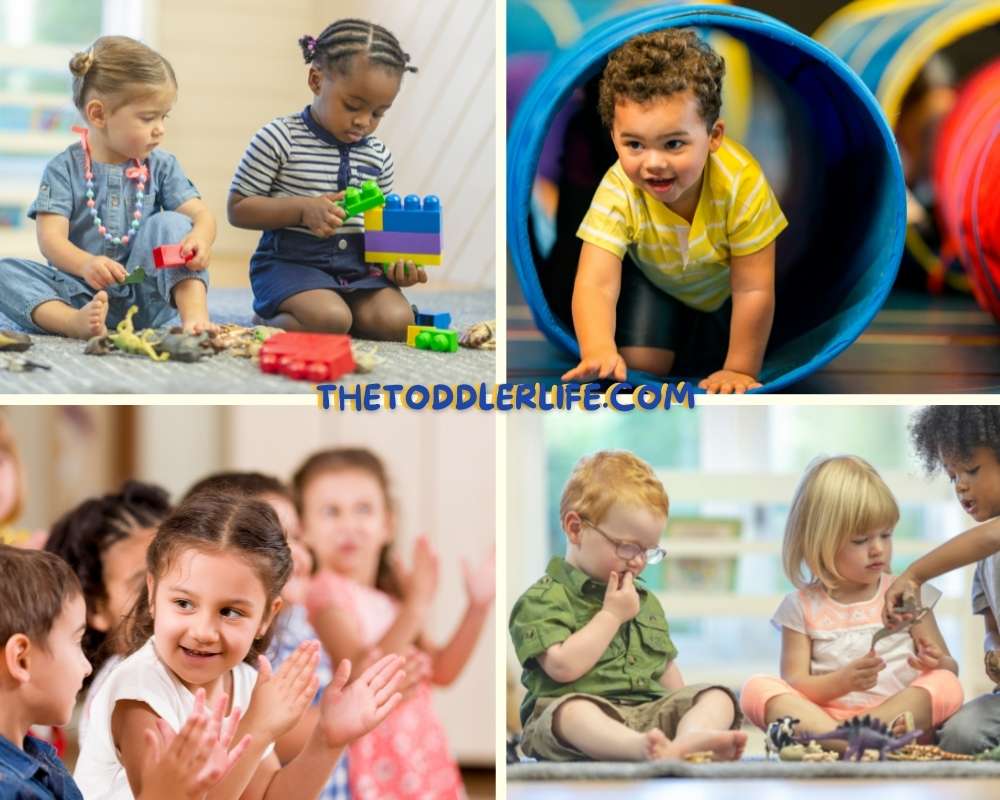Have you ever tried to play a game with your toddler, and they lost interest within minutes? This is because fun is a key component in keeping a toddler’s attention. At this age, kids have short attention spans and will move on to the next thing if they aren’t having fun. But why is fun so important?
Fun in games plays a key role in the early development of young children. It is how toddlers learn, build relationships, develop problem-solving skills, and explore their interests. If games aren’t fun and entertaining, more than likely, they will not hold a toddlers’ interest.
A toddler’s energy can be especially fun to watch. They learn by exploring, seeing what they can do with their environment, which often includes opening up drawers and turning things upside down. If you’re looking for ways to keep your child more engaged during play, look no further. This article will tell you exactly why fun in games is key for toddler play and give you some ideas of games you can play with your little one.

What Does It Mean to Actually Have Fun in Games?
The simplest definition of fun is to enjoy oneself. And that is really what toddlers are all about.
Toddlers are in the process of discovering the world and how they fit into it. As they go through the day, they are testing things out to figure what makes them feel good and what doesn’t. This is why they will quickly move from one thing to the next—they are looking for that enjoyment.
Making sure your child is having fun during play will help them keep focused, stimulate creativity, and encourage imagination.
However, play and games are more than just a chance to have fun. Playtime is essential when it comes to a child’s health and development. It’s important for their behavioral and social skills as well as their physical and cognitive abilities. There are many different types of play, and it can be both enjoyable and educational for young children.
What are the Most Fun Games for Toddlers?
Play is all about having fun! In general, any activity your child finds enjoyment in can be considered play. The types of games your child will have fun playing and engage with will change depending on their age. Below is a list of games and activities that are typically popular among toddlers:
- Playing make-believe. This is a form of dramatic play that often emerges as your child reaches their toddler years. Simple games such as holding a toy phone to your ear and pretending to talk or pretending to eat fake food can really bring your toddler’s imagination to life.
- Building with blocks. This is a goal-oriented style of play and helps develop creativity and problem-solving skills.
- Climbing and sliding. This functional form of play helps your little one explore the world with their senses, strengthens motor skills, and encourages active movement.
- Drawing and coloring. Most kids of any age love drawing and coloring in some form. This encourages creativity, increases motor skills, and teaches concepts like colors and shapes. These are also great entertainment for a restaurant game.
- Singing nursery rhymes. Kids like to sing and make noise. Singing nursery rhymes together or playing simple instruments can help your toddler develop rhythm and work on listening skills. Singing well known nursery rhymes is a classic game.
- Messy play. Playing with things like sand, water, or paint allows your toddler to explore new textures and sensations. For example, try hiding plastic animals in the sand, finger painting, or scooping and pouring water.
Allow Time for Unstructured Play
Though it’s a fun bonding experience to play structured games with your little one, unstructured play is extremely important at this age. This is when your child will have to freedom to explore their interests, find some independence, and develop their imagination.
Given the freedom to explore and play in a safe environment, your toddler may sometimes move quickly from one thing to the next, occasionally stopping to examine and explore something that catches their interest. This teaches them to make their own decisions and show you what they find enjoyment in.
Maybe your toddler reaches for the same fun game over and over again. Or maybe they sit for a long period of time just playing with blocks. This will give you an idea of what they have fun doing and what they might find boring or frustrating.
Final Thoughts
Play is important for every aspect of development. This will develop your toddler’s skills like curiosity and creativity, which will help them as they grow into adults. The most important thing you can do to encourage play is to allow your child plenty of time for both structured and unstructured play and to make sure they are having fun.

